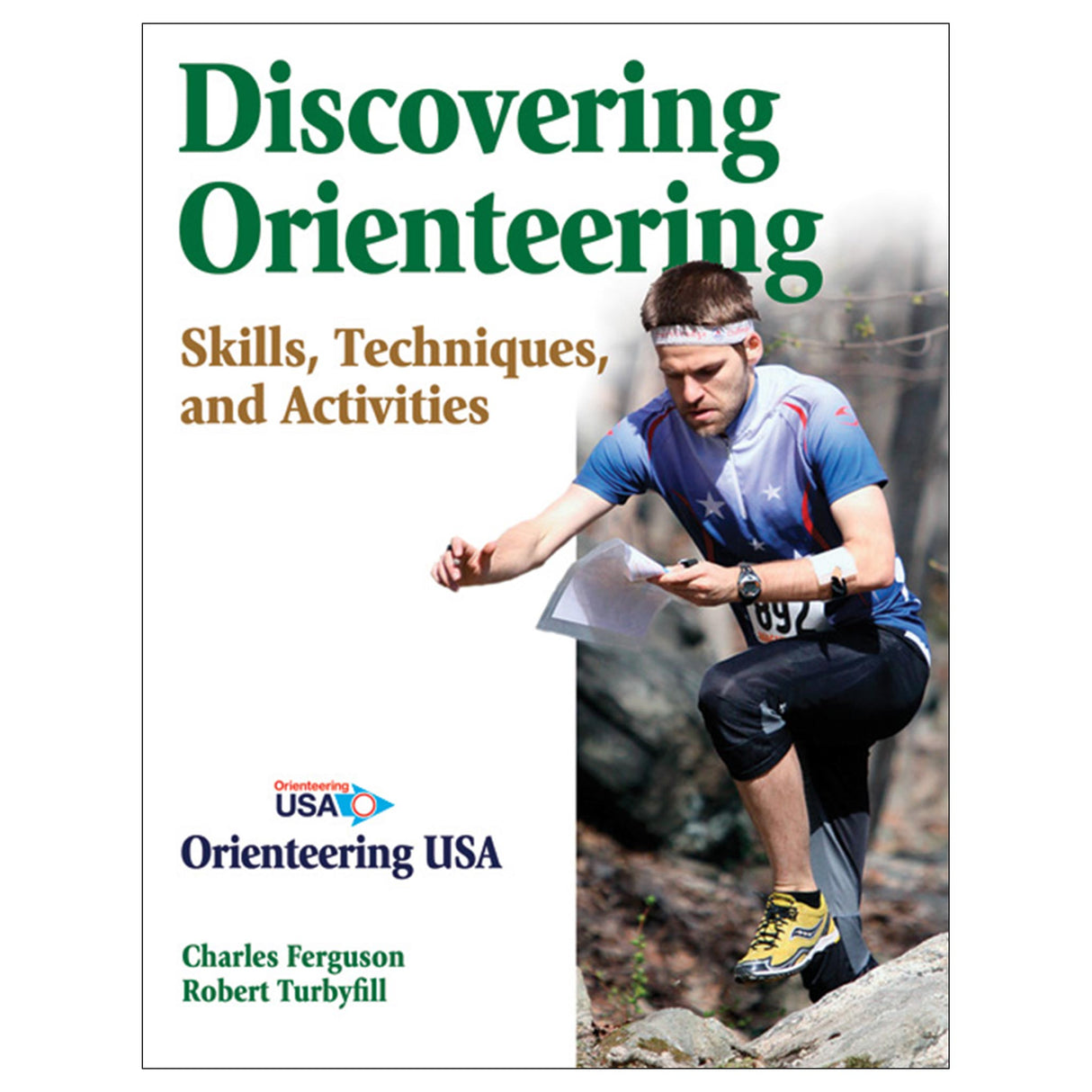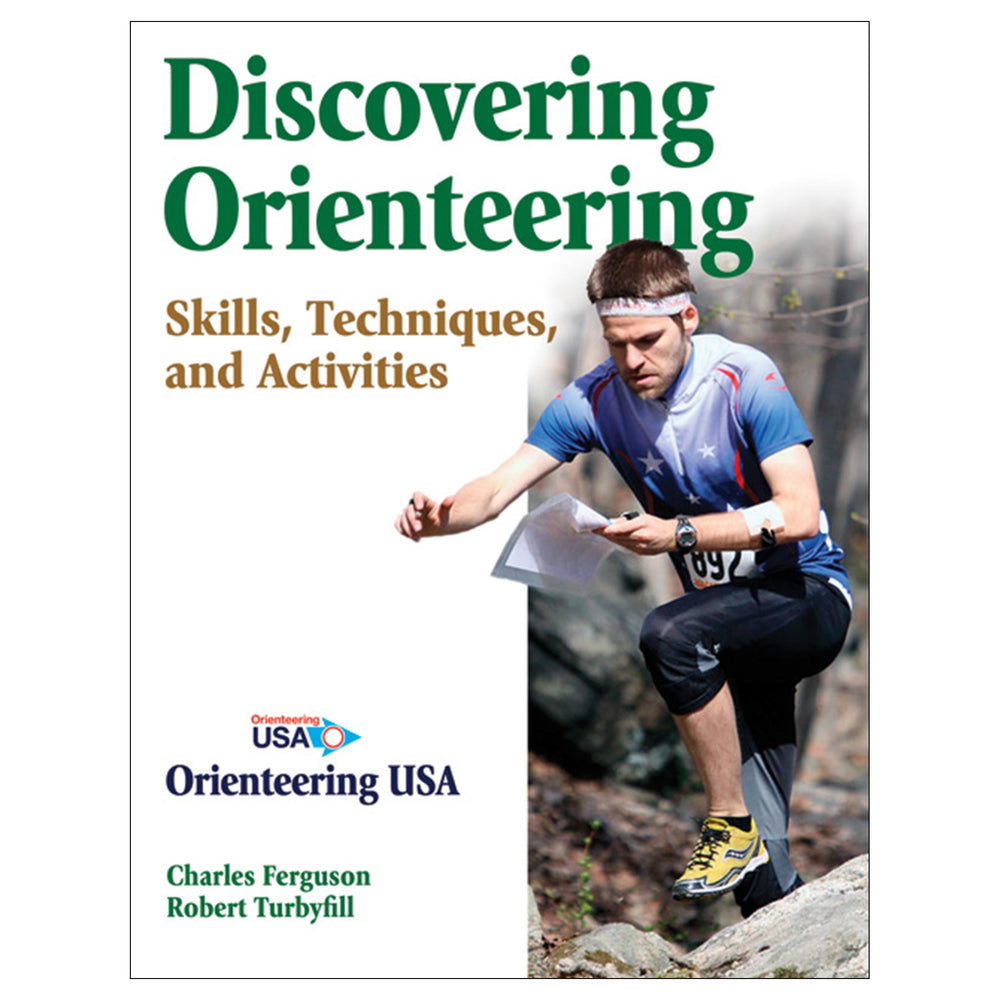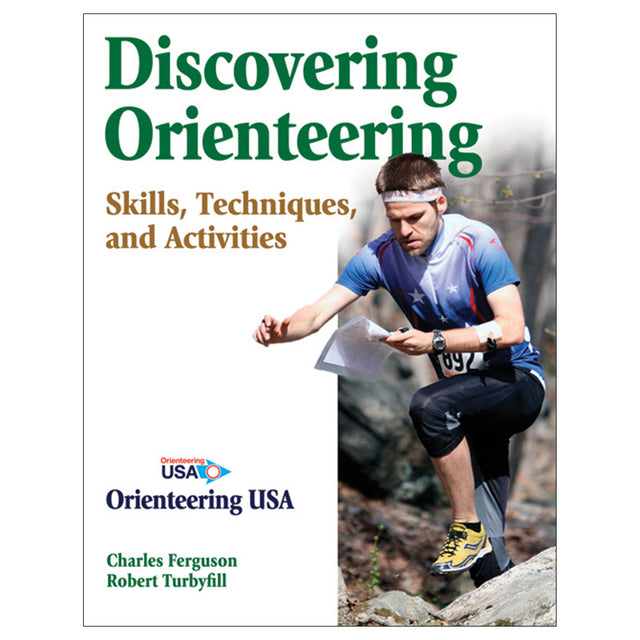Discovering Orienteering
Skills, Techniques, and Activities
Author: Charles Ferguson, Robert Turbyfill
$48.00 USD
Engaging the mind and toning the body, orienteering offers a mind–body workout that builds confidence, problem-solving skills, and an appreciation for the natural environment. Written in an engaging manner, Discovering Orienteering: Skills, Techniques, and Activities offers a systematic approach to learning, teaching, and coaching orienteering. Discovering Orienteering presents the basic skills and techniques of the sport for beginners. It also functions as a review for advanced orienteers, featuring stories of orienteering experiences to illustrate the fun, challenge, and adventure of the sport.
An excellent resource for physical educators, recreation and youth leaders, and orienteering coaches, Discovering Orienteering distills the sport into teachable components relating to various academic disciplines, provides an array of learning activities, and includes an introduction to physical training and activities for coaching beginning to intermediate orienteers. Guidelines take eager beginners beyond the basics and prepare them to participate in orienteering events. More than 60 ready-to-use activities assist educators in applying the benefits of orienteering across the curriculum.
Developed in conjunction with Orienteering USA (OUSA), Discovering Orienteering addresses the methods, techniques, and types of orienteering commonly found throughout the United States and Canada. Authors Charles Ferguson and Robert Turbyfill are experienced orienteers with expertise as trainers and elite competitors. Ferguson and Turbyfill also have backgrounds in education with a variety of teaching experiences, lending to the book’s utility as a resource for introducing orienteering in a physical education or youth recreation setting.
Discovering Orienteering begins by explaining the basics of orienteering, including a brief history of the sport followed by information on fitness, nutrition, safety, and tools and equipment. After this introduction, readers learn orienteering skills, techniques, and processes using the OUSA’s systematic teaching and coaching methodology.
Next, readers learn how to apply these skills, techniques, and processes to an event situation. Orienteering ethics and rules are discussed, including the ethical use of special equipment. Information is also included to help readers prepare for and compete in an orienteering event.
Activities in the appendix are presented in a concise lesson plan format indicating the skills or techniques covered in the activity, level of expertise required, and equipment needed.
Discovering Orienteering: Skills, Techniques, and Activities offers an excellent introduction to the sport for beginniners and a comprehensive resource for educators, youth leaders, and coaches. With its systematic approach, Discovering Orienteering can help readers chart a course to fun and adventure in the great outdoors.
Audience
Resource for physical education teachers, classroom teachers, and recreation and youth leaders who teach the sport of orienteering. Reference for outdoor leaders and park rangers, search and rescue professionals, scout leaders, and personnel in ROTC, JROTC, and military.
Chapter 1. Introduction to Orienteering
What Is Orienteering?
Why Learn to Orienteer?
Basics of Orienteering
Benefits of Orienteering
Places to Orienteer
History of Orienteering
What Orienteering Is Not
Coaching Certifications
Learning to Orienteer Systematically
Summary
Chapter 2. Fitness, Nutrition, Equipment, and Safety
Fitness
Nutrition
Equipment
Clothing
Shoes
Safety
Never Get Lost Again
Summary
Chapter 3. Map and Compass
Maps
Compass
Map or Compass?
Drift
Terrain and Ground
Summary
Chapter 4. Navigational Skills
Estimating Distance by Measure and Pace
Map Reading
Precision Compass Reading
Rough Compass Reading
Orienting the Map
Putting the Skills Together
Summary
Chapter 5. Techniques
Finding Attack Points
Aiming Off
Collecting Features by Thumbing Along
Catching Features
Following Handrails
Using the Techniques With the Skills
Teaching Tips
Summary
Chapter 6. Processes
Orienting the Map
Simplifying
Selecting the Route
Developing Map Memory
Relocating
Summary
Chapter 7. Ethics, Integrity, and Rules
Exhibiting Integrity
Ethical Assistance to Other Competitors and Environmental Stewardship
Ethical Use of Special Equipment
Summary
Chapter 8. Preparing Before an Event
Find an Event
Choose a Course
Gather Your Equipment
Dress Properly
Know Your Start Time
Pick Up Your Meet Packet
View the Finish Location
Study the Competition Map
Summary
Chapter 9. Getting Ready to Start Your Course
Study Your Control Description Sheet
Fold Your Map Properly
Scope the Map
Prepare Your Scorecard
Teaching Tips
Summary
Chapter 10. Running the Course
At the Start Line
On the Course
At the Finish Line
Record Notes on Your Map
After the Event
Assess Personal Performance
Summary
"Build your orienteering skills quickly using Ferguson and Turbyfill’s system, which is sequential, logical, and thorough. Using Discovering Orienteering: Skills, Techniques, and Activities, you’ll be ready to head off trail in a matter of days with confidence and enthusiasm."
Mary Jo Childs-- Author, Coaching Orienteering, U.S. Orienteering Team Member, 1989 World Orienteering Championships
"I have taught the National Park Service's Basic Search and Rescue course with Chuck Ferguson. I highly recommend Discovering Orienteering for improving land navigation skills, whether you are in search and rescue or the military; or you are a park ranger, hiker, or bird watcher; or you just love the outdoors and want to get into the middle of it."
Dan Pontbriand-- Retired Chief Park Ranger and Former Chief of Emergency Services, National Park Service
"Using these precepts, Coach Ferguson had our team of inexperienced orienteers soaring in an international NATO military competition in Denmark, capturing a long-sought-after first-place novice win. I have long used these skills and techniques in teaching Navy SEALs, so I endorse them fully."
Grant Staats-- Commander, Navy SEALs and U.S. Navy Reserve, Team Captain, U.S. CIOR Team
"This book provides a great baseline for anyone learning how to navigate and is an excellent complement to current military instruction. Using direct language and often hilarious anecdotes, Chuck has pared down land navigation to its essence, making an outstanding supplement for both beginning students and seasoned operators."
Christopher Nelson-- Captain, U.S. Marine Corps, Land Navigation Instructor, The Basic School





